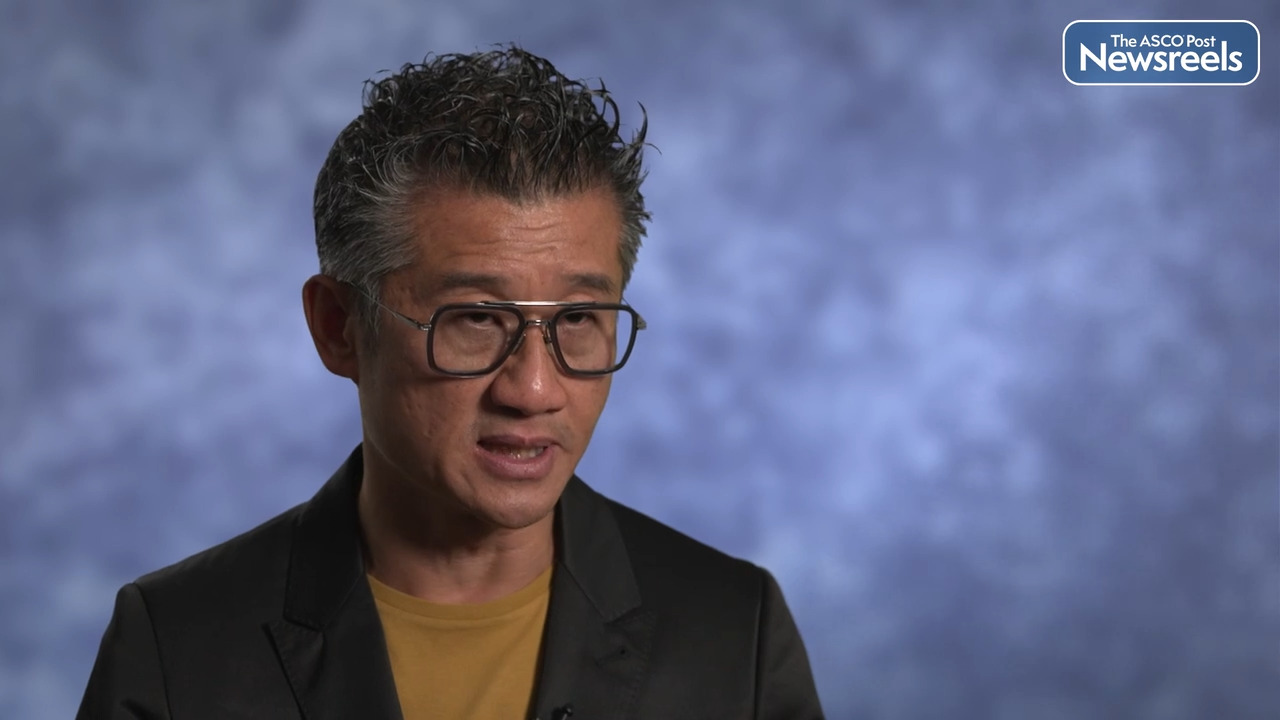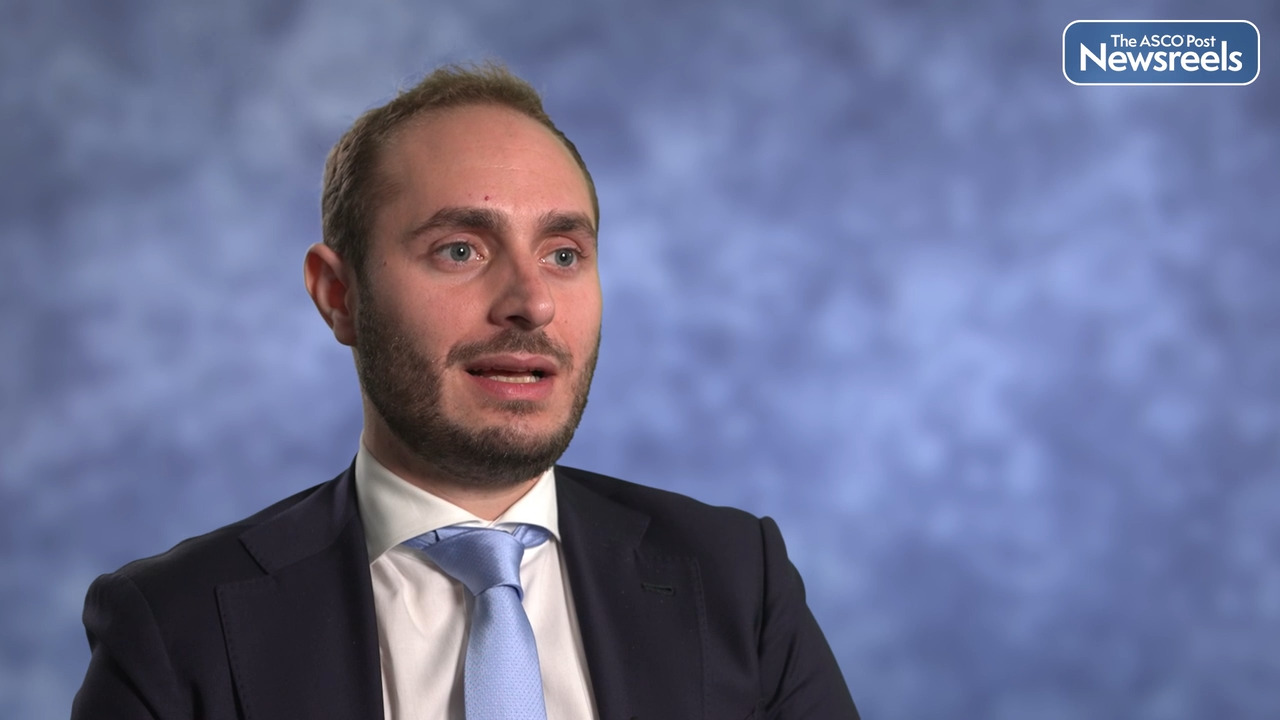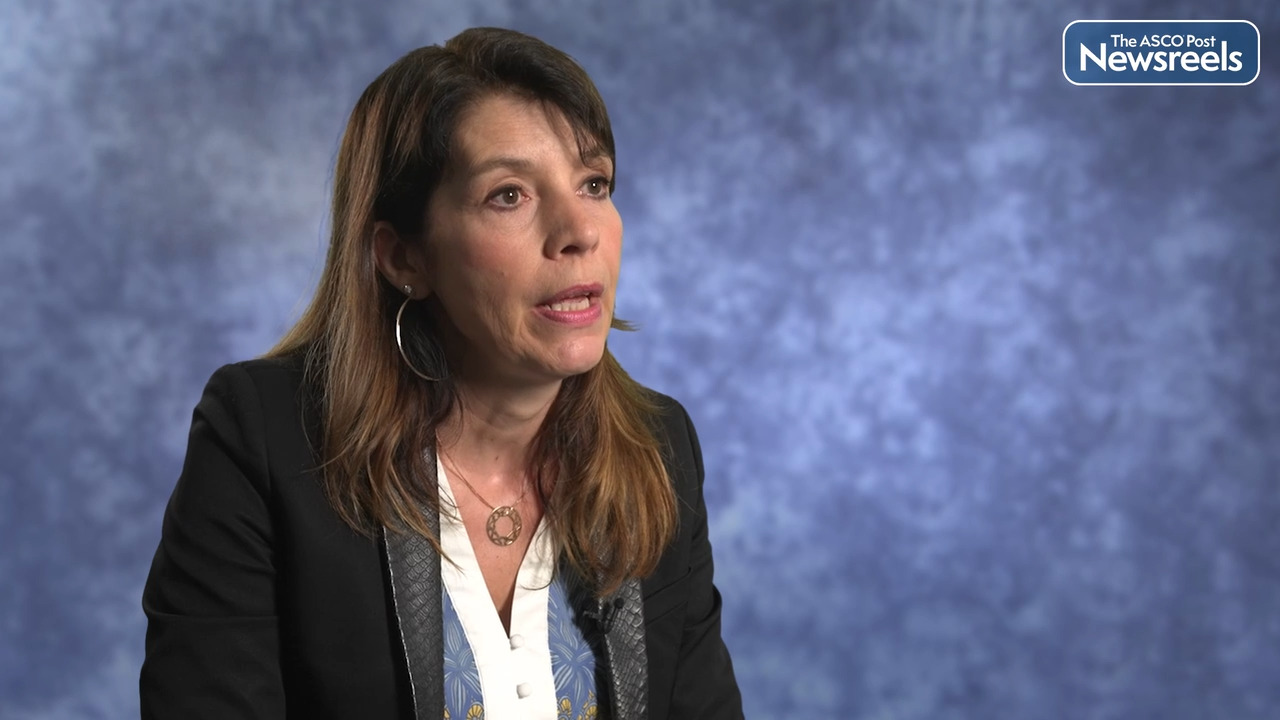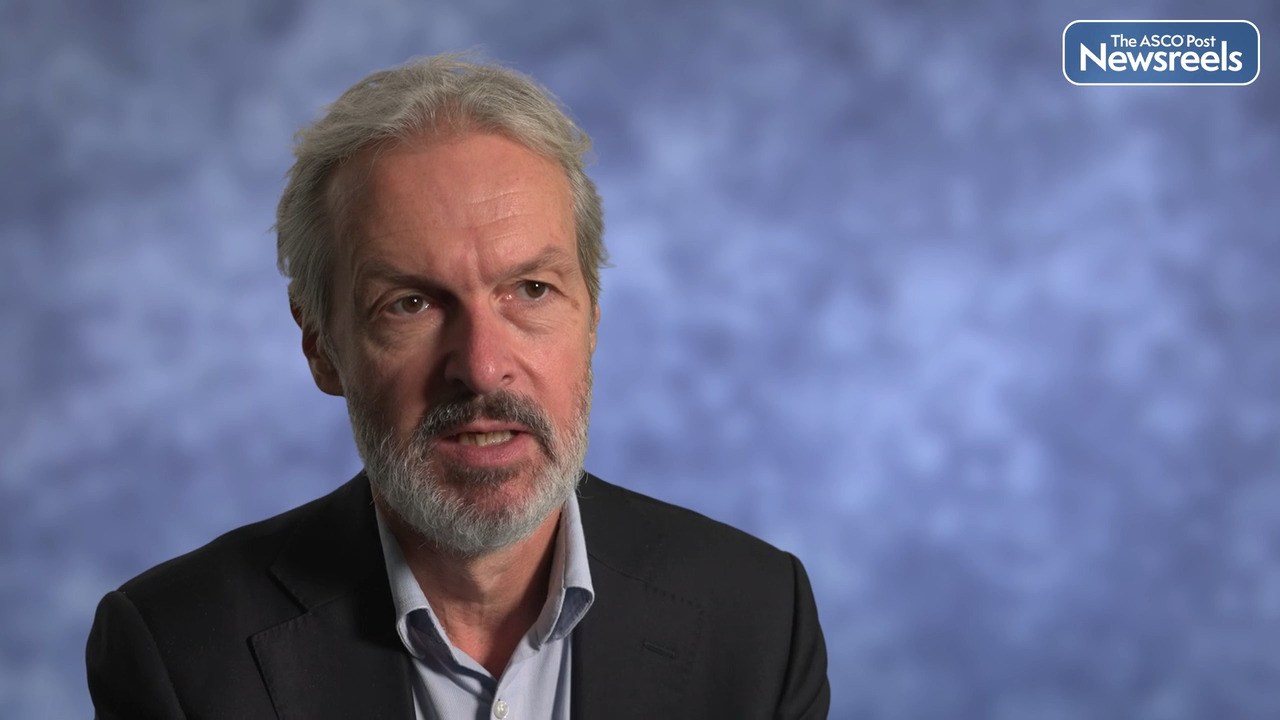Transcript
Disclaimer: This video transcript has not been proofread or edited and may contain errors.
EMPOWER-Cervical 1 is a Phase III open-label randomized clinical trial in patients with recurrent metastatic cervical cancer who have progress after platinum therapy. 608 patients were randomized to anti-PD1 agent cemiplimab of investigator choice chemotherapy. The main stratification factors were geography regions, previous use of bevacizumab, histology, and ECOG. Patients received therapy until progression and acceptable toxicity on 96 weeks.
The primary endpoint of the study was overall survival, and secondary endpoint was PFS and overall response rate. Regarding baseline characteristics, the majority of patients had a squamous cell carcinoma less, than half had previous use of bevacizumab, and approximately 50% of the patients had received more than one prior line of therapy for the recovering and metastatic setting. The trial met its primary endpoint and the final analysis of survival, with 30 months of follow-up show that median overall survival was significantly longer with cemiplimab compared with chemotherapy in the squamous cell carcinoma population, also, in the overall population.
Regarding the results, according the PDL-1 status, we can state that overall survival was longer for both populations, PDL-1-positive and PDL-1-negative. In addition, higher overall respond rates were observed with cemiplimab compared with chemotherapy in all the population, namely PDL-1-positive and PDL-1-negative. In terms of safety, there is no new safety signal. The safety profile of cemiplimab was consistent with that other anti PDL-1 regimen.
So, we can conclude saying that cemiplimab, a second-line therapy after platinum failure statistically and clinically meaningful prolongation of overall survival compared with chemotherapy in squamous cell carcinoma population, and in the overall population. In the PDL-tested population, cemiplimab was associated with the clinical-meaningful improvement of overall survival compared with chemotherapy in both populations, namely PDL-1-positive and PDL-1-negative.
In summary, cemiplimab was associated with a prolongation on overall survival for the patients who have progress after platinum therapy, regardless of PDL-1 status. I can summarize saying that with a median follow-up of three months, the final overall survival data for the EMPOWER-Cervical trial showed that cemiplimab was associated with significantly prolongation of overall survival for our patients with metastatic recurrent cervical cancer who have progress after platinum therapy.





